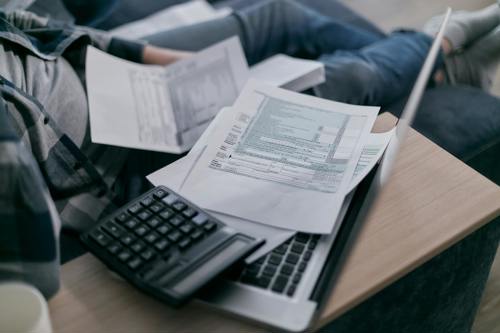
Understanding the main causes of debt allows you to recognise situations that may lead you down that path. This can help you try to avoid these pitfalls.
In this blog, we'll explore some of the most common events that often lead to debt.
Low income
This might happen when you have a low-paying job that leaves no extra income for savings or when you're not getting enough hours. In this situation, it can be hard to create an emergency fund. Having this fund can help you handle unexpected expenses like a broken boiler. Without it, you may easily fall into debt.
Although it may feel impossible, you can always make small steps towards building this fund to give you some peace of mind for the future.
Divorces or changes in relationships
Transitioning from two incomes to one can be hard, especially when unexpected expenses arise. This would be a great time to sit down and create a budget, which can help you analyse spending habits and understand where sacrifices can be made.
Job loss
A sudden loss or decrease in work hours can cause an overall lack of security and many times lead into debt. Having access to savings can help you through difficult times. However, if you are struggling to save, it is worth checking if you are entitled to any help from the government.
Business expenses
Starting a business can be a lifelong achievement, especially if it becomes successful. However, according to Experian, roughly 50% of new businesses close their doors within three years. This is a common way many fall into debt, as owners are still liable for the debts if the business stops trading.
This highlights the need for careful planning and risk management for new entrepreneurs. While starting a business may be exciting, it's vital to understand the possible challenges and have a strong plan to deal with them.
Credit cards and overdrafts
In 2023, 43% of UK households were dealing with credit card debt, and 22% were facing overdraft debt, according to Equifax. Both types of debt can negatively impact your credit score, potentially making it harder to get finance in the future. It's therefore best to avoid these situations, especially if you're not sure you will be able to pay it back.
To avoid these situations, you should take steps to budget. Without a clear understanding of your monthly income and outgoings, staying on top of essential payments becomes more challenging.
How do I start making debt repayments?
To start reducing your debts, consider creating a repayment plan. You have different methods to choose from like the debt snowball technique or the debt avalanche approach. The crucial thing is to commit to your chosen method until you've cleared your debt.
Another option to consider if you want to lower your monthly payments is debt consolidation. This means combining all your debts into one single monthly payment. It can make managing your money easier and might even reduce your overall payments if you can get a lower interest rate or spread the payments over a longer term. To achieve this, you might apply for a debt consolidation loan. However, be aware that spreading your repayments over a longer term may mean you repay more interest overall.
Summary
Knowing why people fall into debt can help you steer clear of the same pitfalls. Factors like low income, life changes, and reliance on credit cards often lead to debt. To avoid this, maintain a careful budget, and if you do find yourself in debt, explore repayment options like the snowball or avalanche methods to assist you.
If you're dealing with debt issues, it's important to reach out to your lender as soon as possible to discuss potential assistance. You can do this either directly or seek help from a debt charity. For further guidance and free advice, you can contact MoneyHelper or the Citizens Advice Bureau (CAB).
Think carefully before securing other debts against your home. Your home may be repossessed if you do not keep up repayments on a mortgage or any other debt secured on it.




